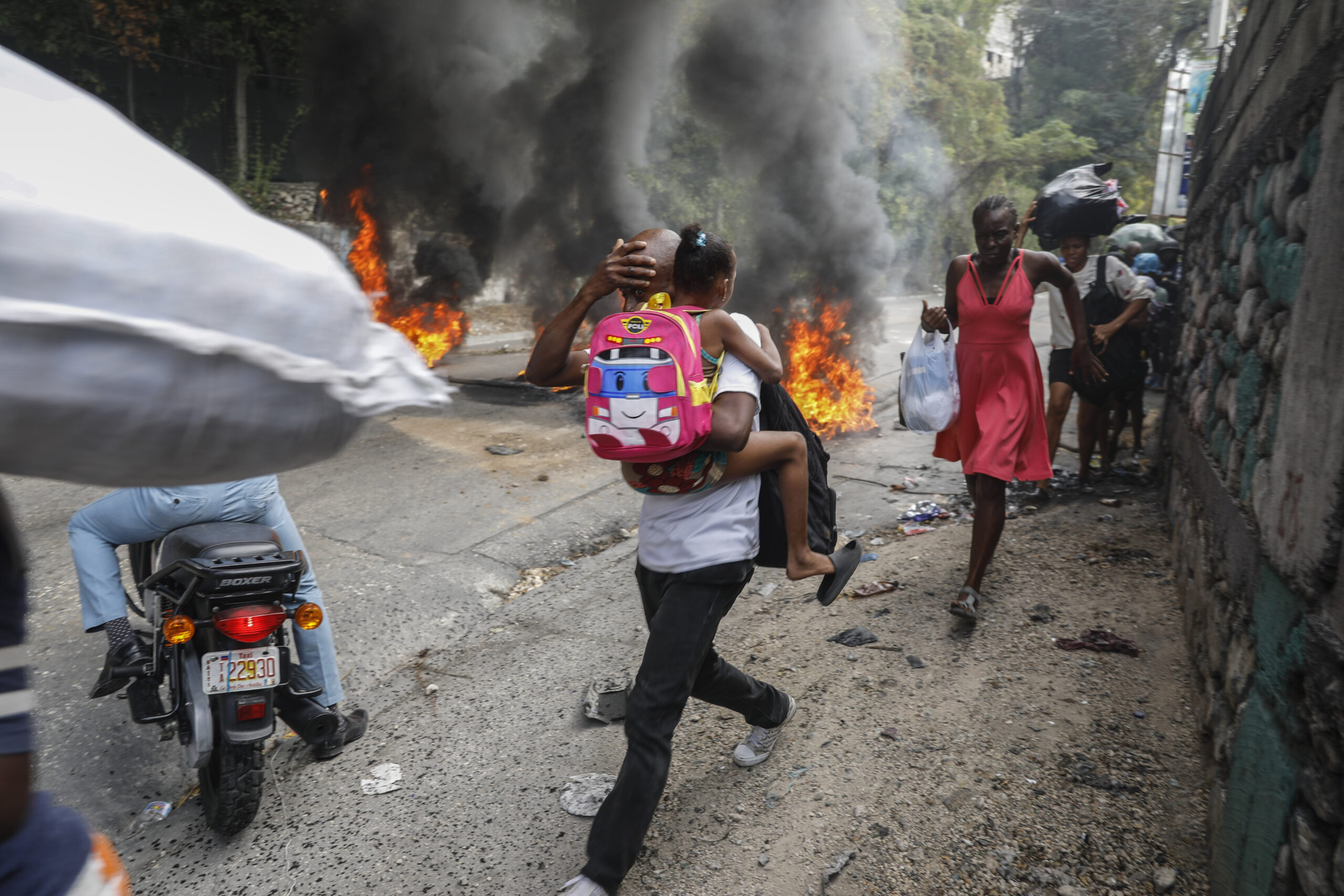A new report from the UN’s International Organization for Migration (IOM) announced that since March, when growing violence in Haiti began due to clashes between armed gangs, it has displaced 580,000 people, underscoring the magnitude of the crisis that is being experienced on the Caribbean island.
The high number of displaced people in Haiti represents an increase of 60% since March, according to the most recent IOM data in the country.
“The numbers we see today are a direct consequence of many years of escalating violence – which reached a new peak in February – and its catastrophic humanitarian impact,” said Philippe Branchat, IOM Haiti Chief of Mission, in a statement.
He also added: “The crisis in Haiti, which seems to have no end, pushes more and more people to be forced to leave their homes and leave everything behind. “It is not a decision they make lightly, nor is it the first time it has happened.”
Gangs took control of police stations
Haiti has long faced unrest, but in late February, gangs unleashed coordinated attacks with gunmen taking control of police stations, opening fire on the main international airport that remained closed for nearly three months, and storming both largest prisons in Haiti, AP reported.
The report published by the International Organization for Migration highlights that the displacement of more than half a million inhabitants is mainly due to people fleeing the capital Port-au-Prince to other provinces, which lack the resources to support them.
“The increasing violence and effective siege imposed by armed groups has forced an even larger group of people to flee to neighboring provinces. This has doubled the number of internally displaced people (IDP) in the southern region, which has gone from 116,000 to 270,000 in just the last three months,” the text writes.
Insufficient infrastructure
In March of this year, more than 362,000 internally displaced people were registered in Haiti. Most are being welcomed by communities that were already struggling with strained social services and insufficient infrastructure, raising additional concerns about tensions with the potential for further violence.
With more than 2,500 people killed and injured across Haiti in the first three months of the year, the Haitian National Police, which is understaffed and overwhelmed by gangs with powerful arsenals, has been unable to control the situation.

It should be noted that since the end of February, the movements of goods such as medicines and fuel between the capital and the provinces have been severely limited, which has aggravated the humanitarian crisis. In the Port-au-Prince metropolitan area, two-thirds of internally displaced people live in spontaneously forming sites with very little access to basic services.
Marie Jean, 49, and her two children were displaced from their home in Port-au-Prince after a gang killed her husband in February. She is now taking refuge with her children in a public school.
“I lived in a comfortable house that my husband worked hard to build,” Jean told The Associated Press. “Now I live in a situation that is inhumane.”
Juste Dorvile, 39, is also staying at a public school with her 12-year-old daughter and her boyfriend, as gunshots are constantly heard in the area. “Every day we hope to survive,” she told the same news agency.
Gangs control 80% of the capital
As gangs control at least 80% of Port-au-Prince and key roads leading to the rest of the country, many live in makeshift shelters, including schools and learning institutions, which now house more than 60,000 people.
The IOM highlighted in the statement that they have deployed mobile clinics to provide medical assistance to 18,000 people, in addition to facilitating access to psychosocial support, which is provided through a free emergency call line.
They are also coordinating awareness-raising activities with local communities, focused on topics such as child protection, mental health, accountability and reproductive health that have benefited thousands of people.
Haiti’s new interim prime minister, Garry Conille, who was named last month along with a cabinet, attended a ceremony Tuesday in which more than 400 officers graduated from the police academy, with the expectation that they will help stop gang violence in Haiti.
Keep reading:
- Haiti’s Prime Minister hospitalized after suffering an asthma attack
- The United States resumes the deportation of Haitians by sending a flight with 50 migrants
- How weapons trafficked from the US are fueling violence in Haiti
